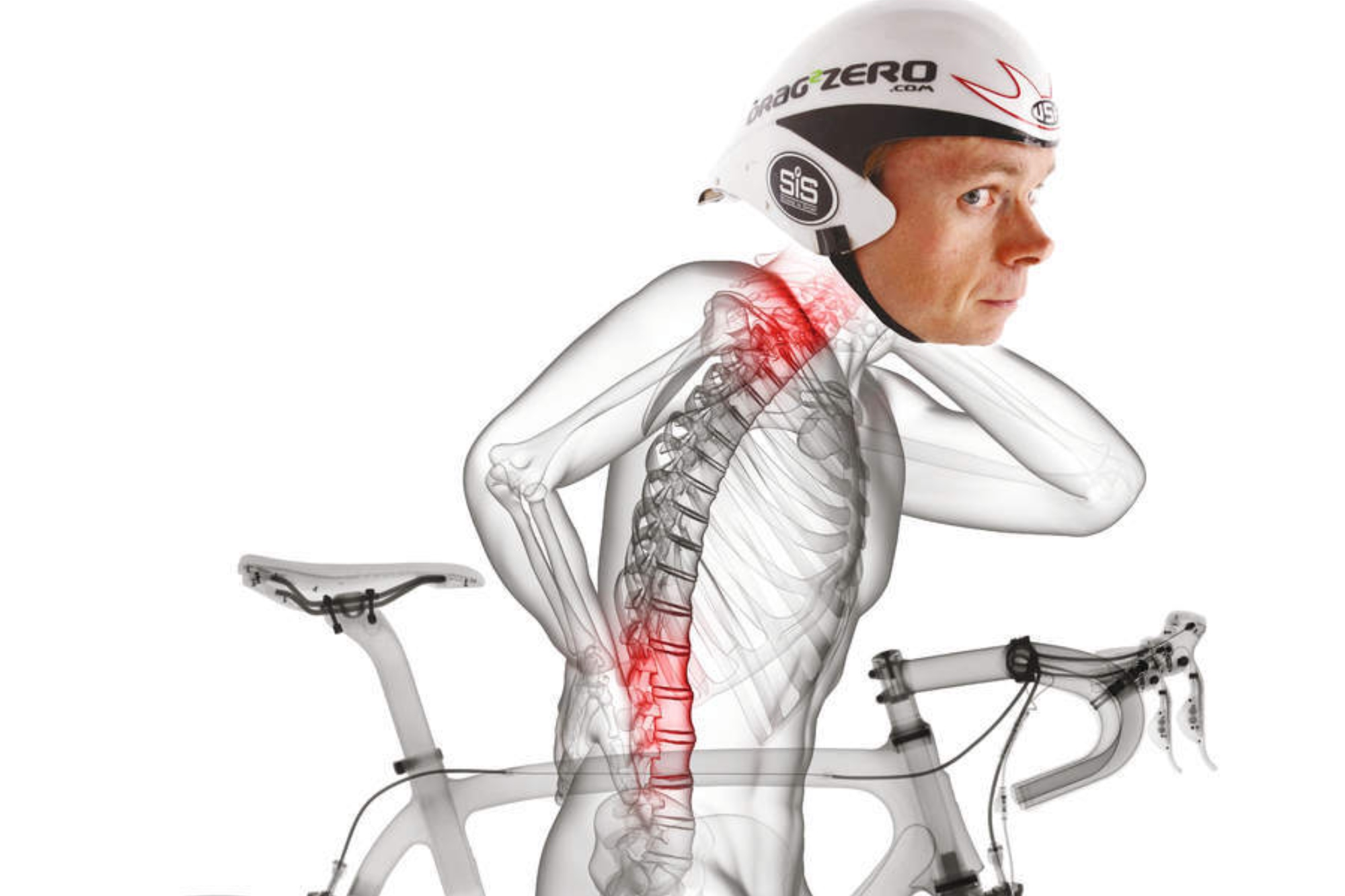Dr Hutch: Back pain is your body's way of telling you to cycle more
Cycling Weekly's columnist explains why he decided on curing his back pain by getting on his bike even more

The latest race content, interviews, features, reviews and expert buying guides, direct to your inbox!
You are now subscribed
Your newsletter sign-up was successful
For as long as anyone can remember, my friend Bernard has had a bad back. And for just as long I’ve felt that it was his most versatile asset. “Don’t attack me on the climb, not with my back… sorry I missed all those turns, my back, you know… I’d have had you in the sprint, but….”
There have been days when I’ve had my doubts about it. I sometimes suspected that the poor performance led to the back issues, rather than the other way around. But not anymore. I’ve got a sore back myself, and I’ve had my eyes opened to my friend’s condition.
The most aggravating thing about a bad back is the lack of sympathy. The full list of symptoms of lower back pain is 1) the patient will show signs of pronounced laziness and 2) they will complain they have a sore back. That’s it. Even if you take an x-ray there’s not a lot to look at. It’s a condition more or less designed so that no one will believe you.
I don’t know how my injury originated. I gave up stretching, but that was in 2005, so it’s probably not that. It seems unlikely to be cycling, since I’ve been doing that for decades without hurting my back and the only chronic cycling injury I’ve ever had was that I used to get painful knees when I over trained. This would have been a very useful red light if I’d ever paid any attention to it – normally I just thought, “Ah. Sore knees. Really getting somewhere now,” and kept on going.
Despite the evidence offered by Bernard, I’m certain that cycling must be a cure for lower back pain. Did the chiropractor not tell me to keep it mobile? How much more mobile than 200 miles a week does he want? More directly to the point, the weather has just warmed up and I didn’t plug my way through the winter gloom so I could sit about going, “Ow, my back,” all spring. I decided that for purposes of convenience, if not actual logic, that cycling must be a cure because the alternative doesn’t bear thinking about.
An octogenarian friend of my parents recently took his almost equally elderly bike to a bike shop to have a snapped gear cable replaced.
“Have you thought about an e-bike?” asked the assistant.
He said that he hadn’t.
“You really should, not suggesting you’re getting on or anything, but they really make the difficult bits of a ride easier so you get a lot more out of the day. We’ve got one that would fit you perfectly.”
“One question,” said my parents’ friend, “and that’s that actually I only ever ride on a turbo trainer these days. I just don’t feel safe on the road, and I only really want to do 20 minutes for the exercise. Would an e-bike be suitable for a turbo trainer?”
The assistant didn’t even blink before assuring him that an e-bike would be perfect for using on a turbo trainer.
The question was whether I needed to change my riding? If the diet of mainly steady and tempo riding hadn’t already cured me, was it time for something else? The most obvious thing to try was to drop the intensity and compensate with more volume. This would, so my thinking went, put less stress through my lower back, while increasing mobility, maintaining blood flow and (something, something, something) promoting healing. That seemed like a likely direction.
But another possibility was to do some shorter interval workouts on the turbo. My contrasting reasoning for these was that there’d be fewer shocks from the bumpy roads, the reduced time on the bike might be a good idea, and the higher forces might improve my core stability. Everyone knows that core stability is good for protecting an injured back.
The latest race content, interviews, features, reviews and expert buying guides, direct to your inbox!
I compromised and did both, on the basis that I’d concluded cycling doesn’t actually cause lower back pain so doing more couldn’t do any harm. I added some stretches and gym work, because the chiropractor insisted. He didn’t actually mention cycling, which seems funny in retrospect, since it’s such a beneficial therapy.
All this means is that to date the most direct consequence of having a back so iffy that I’ve had to type this column standing up is that I’ve doubled my training, added stretching and some gym work, and I’m heading towards being the fittest I’ve been in ages. Having a bad back is the best thing that could have happened to me.
I’d have to say that none of this has increased the level of sympathy I’m getting for my total inability to do anything helpful round the house. But a price worth paying, I think.
Michael Hutchinson is a writer, journalist and former professional cyclist. As a rider he won multiple national titles in both Britain and Ireland and competed at the World Championships and the Commonwealth Games. He was a three-time Brompton folding-bike World Champion, and once hit 73 mph riding down a hill in Wales. His Dr Hutch columns appears in every issue of Cycling Weekly magazine